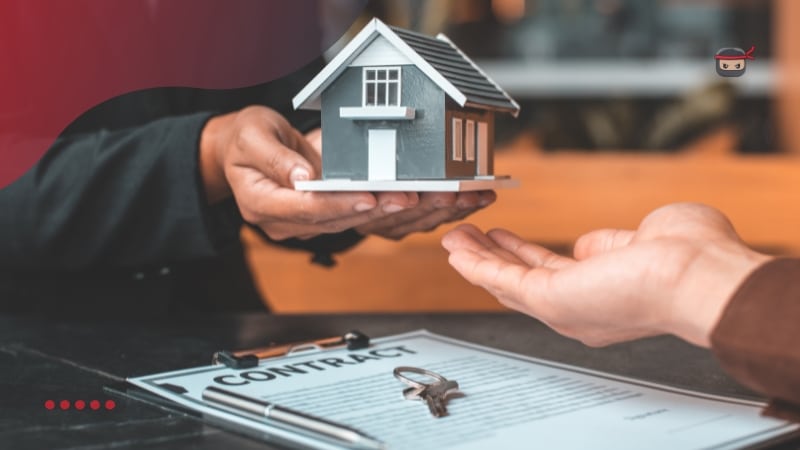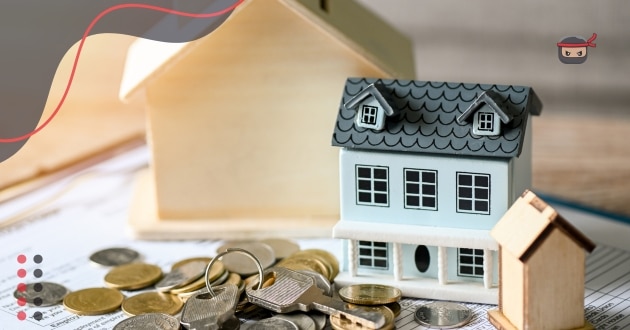How to buy a house with bad credit can seem like an impossible challenge at first glance. Many people believe that having a poor credit score automatically disqualifies them from achieving the dream of homeownership. However, while a low credit score does create obstacles, it does not entirely shut the door to buying a house.
On the contrary, understanding how to buy a house with bad credit requires shifting focus from the challenges to the solutions. By exploring alternative financing options, improving your financial profile, and seeking professional advice, you can take concrete steps toward owning your own home.
In addition, how to buy a house with bad credit comes down to knowing the strategies that work for you. Despite conventional beliefs, there are accessible pathways for buyers with less-than-perfect credit scores. The key lies in persistence, preparation, and knowledge of how the system works in favor of determined buyers.
Understanding the Impact of Bad Credit

Before diving into strategies, it is essential to understand how bad credit affects your ability to purchase a home. Lenders use your credit score as a measure of your financial reliability, and a low score can signal greater risk.
However, it is not all bad news. While a poor credit score may complicate the process, it does not make homeownership unattainable. By working with lenders who specialize in subprime mortgages or exploring government-backed loans, you can find options tailored to your situation.
Additionally, demonstrating consistent income, manageable debts, and savings can help offset a less-than-ideal credit history.
Alternative Mortgage Options for Buyers with Bad Credit
For individuals with poor credit, alternative mortgage solutions can offer a path forward. One of the most common options includes government-backed loans, such as FHA (Federal Housing Administration) loans.
These loans are specifically designed to help buyers with lower credit scores or limited savings, as they often require smaller down payments and offer more flexible credit requirements.
Improving Your Financial Profile
While exploring mortgage options, it is equally important to focus on improving your financial health. Even small changes can significantly impact your eligibility for a home loan. Paying down outstanding debts, avoiding new credit inquiries, and ensuring bills are paid on time can help boost your credit score over several months.
In addition, saving for a larger down payment can demonstrate financial responsibility to lenders. It reduces the loan amount needed and may offset some of the risks associated with bad credit. If possible, consider working with a financial advisor to create a personalized plan to strengthen your finances.
The Role of a Co-Signer or Partner
For some buyers, having a trusted co-signer with good credit can open doors to better mortgage terms. A co-signer essentially shares the financial responsibility for the loan, which provides reassurance to lenders.
This option, however, requires clear communication and trust, as any missed payments can impact both parties’ credit scores.
In situations where a co-signer is not an option, exploring a joint purchase with a partner or family member can also increase financial leverage. This approach can make the process more achievable, especially when combining income and resources.
Finally, seeking assistance from mortgage brokers or credit specialists can make a significant difference. These professionals have access to a range of loan products and can connect you with lenders willing to work with individuals who have bad credit.
Resources to Help You Buy a House with Bad Credit
When trying to understand the path to homeownership with a low credit score, leveraging trusted financial tools and platforms can make all the difference.
1. NerdWallet (How to buy a house with bad credit)
NerdWallet is a leading resource for anyone seeking financial advice, including potential homebuyers with bad credit. This platform specializes in simplifying complex financial decisions by providing in-depth comparisons of mortgage lenders, especially those willing to work with buyers with lower credit scores.
One of NerdWallet’s key strengths lies in its mortgage calculator tools, which allow you to understand how your credit score impacts loan terms such as interest rates, monthly payments, and down payments.
Furthermore, NerdWallet connects users with lenders that cater to non-traditional borrowers. Their lender reviews include insights on eligibility criteria, fees, and flexibility, empowering you to make informed decisions and choose the best mortgage option for your needs.
2. Bankrate
Bankrate is another excellent platform for individuals exploring how to buy a house with bad credit. Known for its accurate and user-friendly financial tools, Bankrate provides access to calculators that help buyers assess affordability, potential loan payments. Interest rates based on varying credit scenarios.
What sets Bankrate apart is its comprehensive collection of mortgage guides and lender comparisons. If you’re looking for options like FHA loans or mortgages for bad credit. Bankrate provides detailed breakdowns of the pros and cons of each program.
The platform also frequently updates its interest rate trends, ensuring you have up-to-date insights into the housing market. By leveraging these tools, buyers with low credit scores can better navigate their financial planning process and secure a more favorable loan.
3. Zillow (How to buy a house with bad credit)
For those concerned about credit challenges, Zillow is more than just a property search tool. While Zillow is primarily recognized for its extensive database of homes for sale and rent, it also provides valuable insights for buyers navigating the housing market with bad credit.
One of Zillow’s standout features is its ability to connect users with mortgage lenders who offer flexible programs, including FHA and other non-traditional loan options. Zillow also provides detailed mortgage calculators, helping you determine affordability based on various credit profiles and income levels.
Additionally, Zillow’s home-buying guides cover essential topics. Such as how to prepare financially for a mortgage and how credit impacts loan approval. For buyers with bad credit, understanding these details can improve confidence and readiness to approach lenders.
Exploring Loan Options for Poor Credit Buyers
When considering how to buy a house with bad credit, one of the most critical steps is finding the right type of loan that aligns with your financial situation. Buyers with lower credit scores often face challenges securing traditional mortgages. But there are specific loan options designed to help individuals in this position.
For example, programs such as FHA loans, VA loans, and subprime mortgages cater to those with less-than-perfect credit. Understanding these options is essential to overcoming barriers in the home-buying process. To dive deeper into tailored loan solutions, explore this guid on loans for people with poor credit.
Conclusion: How to buy a house with bad credit
How to buy a house with bad credit may seem like an uphill battle, but it is far from impossible. By understanding the challenges associated with a low credit score and exploring tailored solutions, you can make homeownership a reality.
Moreover, improving your financial profile is a critical part of the journey. By taking steps to raise your credit score, managing outstanding debts, and saving for a larger down payment, you can significantly strengthen your position with lenders.
In the end, buying a house with bad credit is not defined by a single moment but by consistent effort and informed decisions. With the right strategies, alternative loan options. A willingness to improve your financial standing, the dream of homeownership is within reach.

